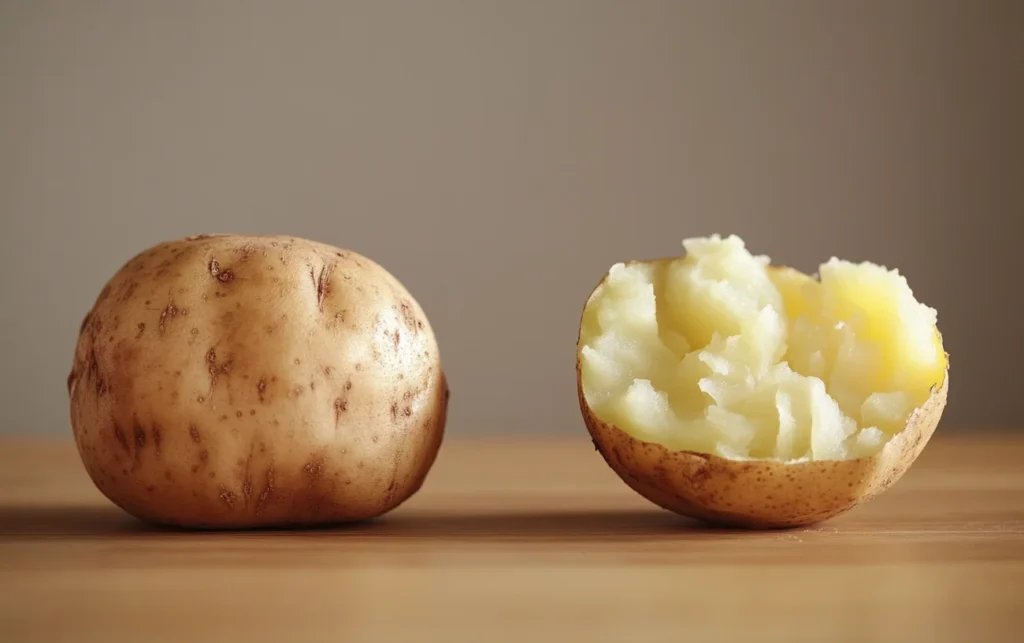Discover the nutritional benefits of two popular potato cooking methods!
Introduction
Potatoes are a staple food in many households, appreciated for their versatility and comfort. However, the method of preparation can significantly influence their nutritional profile. Among the most common cooking methods are boiling and baking. This article explores which preparation method is healthier and what benefits each has to offer.
Nutritional Comparison
Both boiled and baked potatoes have their unique health benefits, primarily depending on how they are prepared and served.
Boiled Potatoes
- Generally lower in calories compared to baked potatoes.
- Retain more moisture, making them easier to digest.
- Contain valuable nutrients such as potassium and vitamin C, especially when the skin is left on.
- Boiling potatoes can lead to some nutrient loss in the water.
Baked Potatoes
- Tend to have a richer flavor and a crispy texture.
- Offer more dietary fiber if the skin is consumed, which is beneficial for digestive health.
- Higher in calories and carbohydrates, making them a more filling option.
- Can be topped with various healthy ingredients, enhancing their nutritional value.
The Role of Additives
How potatoes are served can impact their health benefits. For instance, adding butter or high-fat toppings can negate some of the health benefits, regardless of whether they are baked or boiled.
To maximize health benefits, consider using olive oil, herbs, or spices as toppings, which can complement the natural flavors without excessive calories.
In conclusion, both boiled and baked potatoes have their advantages and disadvantages. Boiled potatoes are excellent for those seeking a lower-calorie option, while baked potatoes provide more fiber and a satisfying texture. The healthiest choice ultimately depends on personal dietary needs and preferences. Remember to consider the toppings and portion sizes to ensure a balanced meal!

